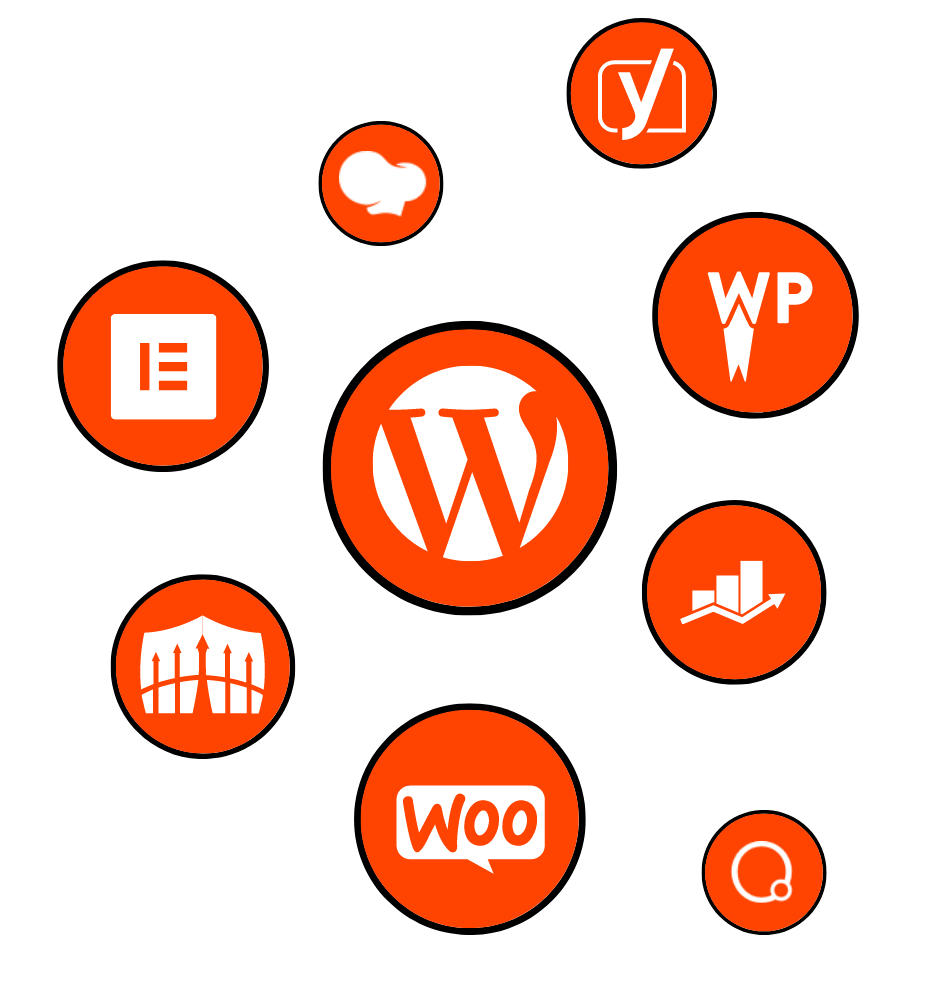
Now that you’ve got your WordPress website, you should know that from time to time, it will need to be updated and maintained to keep it up and running.
Believe it or not, when your website becomes outdated, it becomes vulnerable to malicious attackers or potential website-breaking issues. You might think, “Who cares? I don’t have any valuable information”, but you would be wrong. Malicious attackers use vulnerable websites to execute attacks on other websites, causing search engines to blacklist your website, which can kill your business.
WordPress is updated approximately every three months, bringing security patches, performance improvements, new features, and other updates. For your WordPress site, some elements need to be updated periodically:
Yes, you can! However, it does require some previous knowledge when it comes to performing updates, so you know what to do if something goes wrong, such as:
Maintaining your website goes beyond just updating plugins, themes, and WordPress. Proper maintenance involves updating, security monitoring, and performance review of the website. That is why it is a good idea to hire a professional periodically to do it for you to be sure that everything will be fine.
WordPress Updates: WordPress has consistent updates critical to your website’s operation. Keeping this constantly updated is almost required to keep your site up and running.
Theme Updates: Themes and any plugins that work alongside them get updates as well. Keeping these up to date will allow your site to retain its look and functionality.
Plugins: Because most plugins are created and maintained by third-party developers, they get infrequent updates. However, plugins are essential to a site’s functionality and need to be adequately supported, or they could lead to some critical issues. Whenever you’re looking to add a new plugin to your website, make sure to see how many downloads it has and how frequent the updates are to know if it’s trustworthy.
Site & Data Backups: Keeping constant backups of your site and its data is critical, as it is the only way to restore it in case of an emergency. Having a backup allows you to preserve your site as-is, so you can pick up where you left off if an update or hack affects your site.
Security Monitoring: To keep your site protected against attackers, you’ll need some form of defense. Having plugins such as a firewall or security monitoring can prevent attacks before they happen because the consequences of a hack could kill your business.
At TickSites, we recommend using Wordfence for your website security. It helps prevent attacks before they happen with their firewall, and they can perform deep scans to find any potential security flaws and show you how to fix them.
Unused Plugins: Another vital aspect is plugins that you currently aren’t using, as they can affect the site’s performance. It is best to clean these up and uninstall them, as they serve no purpose.
Spam Comments: Comment sections are a common target for malicious attackers, so you should be policing them to keep you and your users safe. Adding a captcha service or regularly reviewing comments can go a long way for minimal effort.
You can easily take on the task of maintaining a WordPress website, as long as you remember to cover all the points we covered today. But, if at any time you feel like you h need the help of a professional, don’t hesitate to reach out to a qualified WordPress expert.